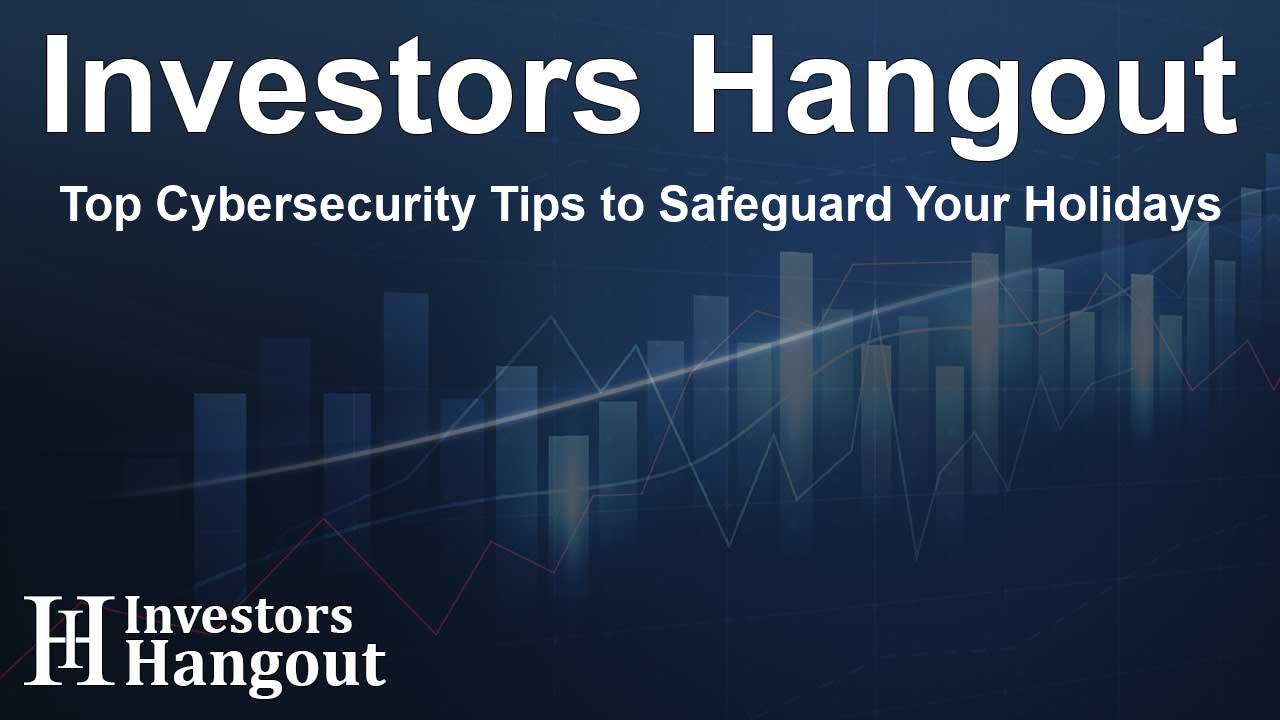Top Cybersecurity Tips to Safeguard Your Holidays

Top Cybersecurity Tips for the Holiday Season
As the holiday season approaches, it presents a myriad of opportunities for shoppers and cybercriminals alike. KnowBe4, a leader in cybersecurity solutions and training, highlights the need for awareness among consumers. This year, the company announces their top five cybersecurity tips aimed at helping shoppers stay safe and secure during this festive time. Emerging scams threaten the joy of the season, and understanding how to navigate these risks can make a significant difference.
The Rising Threat of Cybercrime During Holidays
Each year, substantial amounts of money are lost to cybercriminals who capitalize on the holiday shopping rush. Reports show that scams can lead to losses exceeding billions of dollars annually. Various platforms reported soaring incidences of scams, from phishing schemes to counterfeit websites. Consumers are now more aware of cybercrime tactics as these deceptive practices grow increasingly sophisticated, highlighting the importance of remaining vigilant while navigating holiday deals and offers.
Understanding Common Types of Cyber Threats
During the festive season, certain types of cyber threats become more prevalent. Cybercriminals resort to tactics such as fraudulent emails that appear to be from trusted sources, enticing discounts that seem unbelievable, and fake charity solicitations aimed at scamming well-meaning users. One significant report revealed that phishing efforts have become the primary method of attack, indicating a pressing need for consumers to be cautious and take the necessary steps to protect themselves.
KnowBe4's Essential Tips for Shoppers
In light of these threats, KnowBe4 encourages individuals to be particularly attentive when it comes to their online activities. Here are their five essential cybersecurity tips tailored to the holiday season:
- Beware of Fake Credit Card Alerts: Cybercriminals often impersonate financial institutions, sending fraudulent alerts about suspicious transactions. Always verify such communications by contacting your bank directly through official channels.
- Be Wary of Fake Charity Scams: The holiday spirit encourages generosity; however, be sure to research charities before donating. Only make contributions through verified websites, rather than responding to unsolicited emails or phone calls.
- Caution with Sketchy Mobile Apps: The rise of mobile shopping means an increase in potentially harmful apps. Always download applications from official sources and scrutinize app reviews and permissions before installation.
- Don’t Fall for Unbelievable Discounts: If an offer seems too good to be true, it likely is. Always confirm significant discounts through the retailer’s official website.
- Stay Alert to Holiday Travel Scams: Look out for misleading vacation rentals or suspicious travel deals. It’s best to book through well-known channels such as established travel agencies or reputable hotel chains.
The Importance of Cybersecurity Awareness
According to Stu Sjouwerman, CEO of KnowBe4, "The holiday season is not just prime time for shoppers, it is also open season for cybercriminals." It is essential to maintain a heightened sense of awareness during this period as it enables individuals and organizations to avoid falling prey to malicious scams. Promoting cybersecurity literacy among consumers can substantially reduce susceptibility to fraud.
Conclusion: Safeguarding Your Holiday Experience
With KnowBe4's tips in hand, shoppers can enjoy a safer holiday season by actively protecting themselves from scams and fraudulent activities. By promoting good cyber hygiene and staying informed about potential threats, consumers can contribute to a more secure digital landscape during this bustling time of year.
Frequently Asked Questions
What are the top cybersecurity tips for the holiday season?
Beware of fake alerts, research charities before donating, download apps only from official stores, verify discounts, and be cautious about travel offerings.
Why are cybercriminals more active during the holiday season?
The increase in online shopping and communication provides more opportunities for scammers to exploit unsuspecting consumers.
How can I verify if a charity is legitimate?
Research the organization thoroughly, check for reviews, and ensure donations are made through official websites.
What should I do if I receive a suspicious message?
Do not engage with the message. Instead, verify through official channels before taking any action.
Why is cybersecurity education important for consumers?
Cybersecurity education helps individuals recognize potential scams and safeguards their personal and financial information.
About Investors Hangout
Investors Hangout is a leading online stock forum for financial discussion and learning, offering a wide range of free tools and resources. It draws in traders of all levels, who exchange market knowledge, investigate trading tactics, and keep an eye on industry developments in real time. Featuring financial articles, stock message boards, quotes, charts, company profiles, and live news updates. Through cooperative learning and a wealth of informational resources, it helps users from novices creating their first portfolios to experts honing their techniques. Join Investors Hangout today: https://investorshangout.com/
Disclaimer: The content of this article is solely for general informational purposes only; it does not represent legal, financial, or investment advice. Investors Hangout does not offer financial advice; the author is not a licensed financial advisor. Consult a qualified advisor before making any financial or investment decisions based on this article. The author's interpretation of publicly available data shapes the opinions presented here; as a result, they should not be taken as advice to purchase, sell, or hold any securities mentioned or any other investments. The author does not guarantee the accuracy, completeness, or timeliness of any material, providing it "as is." Information and market conditions may change; past performance is not indicative of future outcomes. If any of the material offered here is inaccurate, please contact us for corrections.